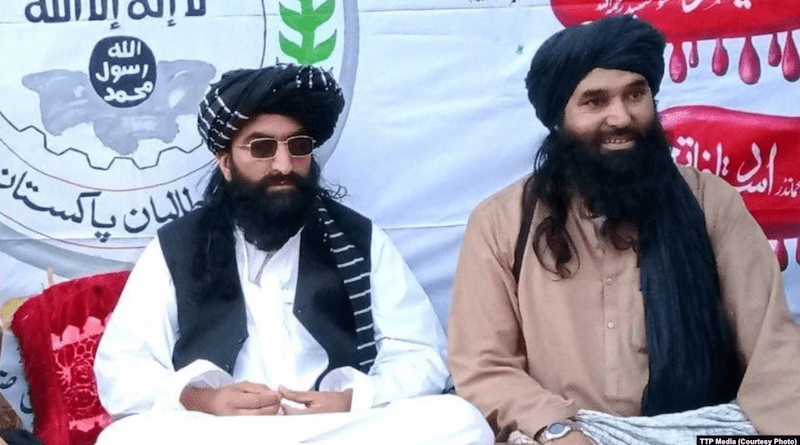The TTP’s Rhetoric And Identity Politics: A Threat To Pashtun Culture – OpEd
The Tekhrek-e-Taliban Pakistan (TTP) has gained sympathy among Pashtuns by claiming to speak for Pashtuns and emphasizing their historical and cultural ties to Afghanistan through identity politics and rhetoric. The TTP uses Pashtunwali, a compilation of Pashtun ideals emphasizing dignity, justice, fortitude, and dedication, to legitimize its war against the Pakistani state and its supporters. The TTP portrays itself as a champion of Pashtun pride and sovereignty while condemning the Pakistani government for corruption, autocracy, and allegiance to foreign interests.
The TTP appeals to the religious sentiments of numerous Pashtuns who adhere to a puritanical and conservative interpretation of Islam and are inspired by Al Qaeda and its expansionist goals. The TTP professes to enforce Sharia law in the region it controls, and it persecutes Shia Muslims, Sufis, and secularists who disagree with its view of Islam.
The TTP takes advantage of loopholes in Pakistan’s long history. TTP recruits young men disillusioned and enraged by a lack of opportunity and justice in their area, presenting itself as the voice of the oppressed Pashtuns. The TTP capitalizes on Pashtuns’ historical and cultural ties to Afghanistan. Many Afghan Pashtuns have family members. The TTP and the Afghan Taliban share the same ideological and political goals. Because of Pakistan’s porous border with Afghanistan, the TTP may operate freely in both nations.
Some of the deadliest attacks of the TTP:
TTP terrorists are Pakistan’s deadliest adversaries, especially in Pashtun culture and community. The TTP claims to support Pashtuns. However, its harsh and inhumane practices have soiled their reputation. The TTP abducts Pashtun society and culture by mobilizing opportunistic terrorists and criminals from inside society. The TTP seeks to kill innocent individuals regardless of nationality, creed, or gender. The TTP’s atrocities against Pakistani society and Pashtuns are inconceivable. Examples of TTP crimes:
The 2014 TTP attack on the Peshawar Army Public School was one of the TTP’s most brutal acts of violence against Pakistanis. TTP militants stormed the school and opened fire on pupils and faculty, murdering 149 individuals, the vast majority of whom were minors. As retaliation for Pakistani military operations in North Waziristan, the TTP claimed responsibility for the detonation.
Teenage activist for women’s rights and girls’ education, Malala Yousafzai, was also a target of TTP brutality. In 2012, a TTP assailant shot her in the skull as she walked home from school in Swat Valley. Following the failed assassination attempt, she became a global symbol of valour and tenacity. In 2014, her advocacy for children’s education earned her the Nobel Peace Prize.
To diminish the cultural diversity of Pakistan, the TTP attacked mosques, sanctuaries, and other sites of worship.
The 2017 attack on the shrine of the Sufi deity Lal Shahbaz Qalandar in Sehwan, Sindh, was among the deadliest. The detonation of the temple killed 88 individuals and injured hundreds more. According to the Islamic State, TTP aided in the assault.
To demonstrate its sectarianism, the TTP murdered Pakistan’s minority Shia Muslims. In 2013, one of the most heinous assaults occurred on a bus transporting Hazara Shias in Quetta, Baluchistan. TTP militants shot 96 passengers and injured 121 others after halting the vehicle. The Hazara community protested and sat in for justice and protection after the incident.
These are only a few of the atrocities committed by the TTP against Pakistanis, which demonstrate its disregard for human life and dignity. The TTP, rather than reflecting Pashtun culture, is its adversary. Pashtun culture is based on a code of behavior that values hospitality, honor, justice, fortitude, and loyalty.
The TTP has entirely replaced Pashtun tribalism with violence and criminality. Fazlullah, Mangal Bagh, Baitullah Mehsood, and Hakeemullah are just some of the local criminals who joined the TTP after becoming Taliban. The TTP holds rich Pashtuns, humanitarian workers, journalists, and government officials captive for ransom. They engage in drug smuggling and other unlawful activities for profit while using fear to coerce and intimidate innocent citizens within the tribal belt. Additionally, TTP charges a safe passage fee and taxes locals.
Conclusion:
The TTP is a terrorist organization that has nothing to do with Islam, Pashtun culture, or Pashtunwali. Their goal is to undermine initiatives to enhance indigenous communities’ quality of life while benefiting themselves at the cost of the locals. They have transgressed practically every Islamic and Pashtunwali principle, including respect, justice, compassion, and loyalty. They have exhibited sectarianism and ethnic hatred by attacking Pakistan’s religious and cultural diversity.
The TTP is an example of a Khawariji fitna, or Muslim militants that resist the existing system and spread chaos and bloodshed. In reality, far from being a representative of the Pashtun people, the TTP has only used violence and tyranny against them. Through political activity, civil society movements, cultural events, and security operations, Pashtuns have fought and resisted the TTP’s presence and influence in their lands. The Pashtuns are very proud of their heritage and culture, and they refuse to let the TTP destroy it.

